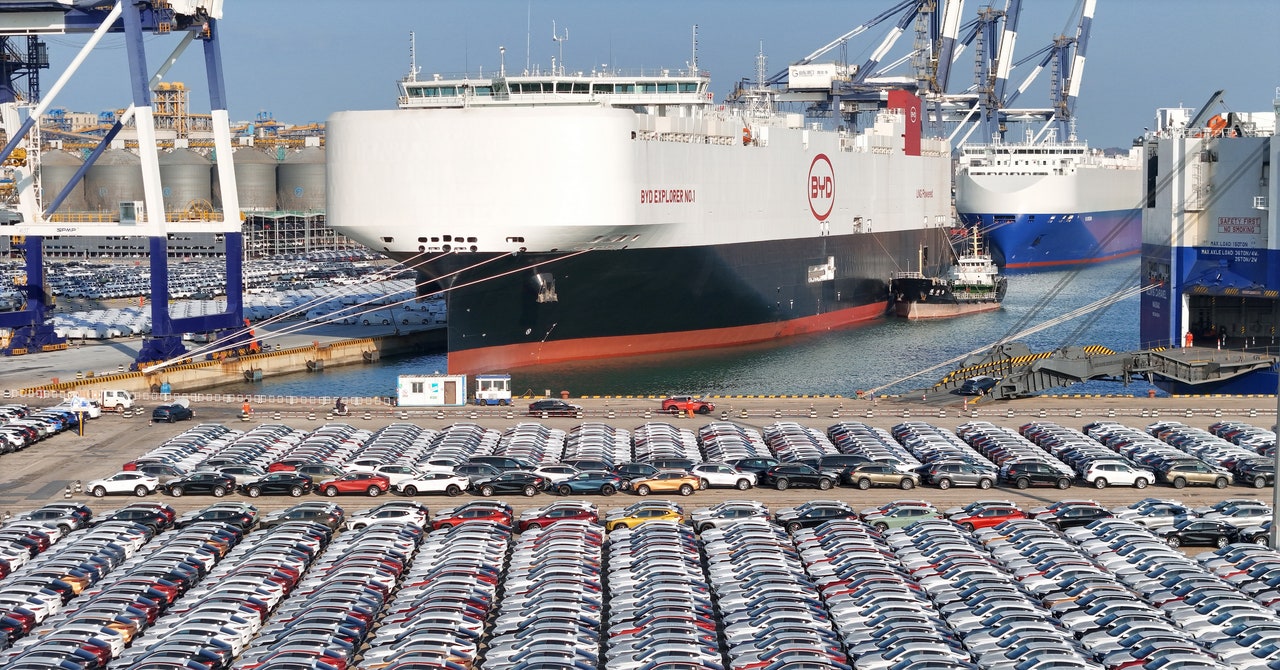Mexico is the second-largest market for Chinese cars in the world, behind Russia, according to data from Linked Global Solutions, a company specializing in business between China and Latin American countries.
Trade war against China
Both the United States and the European Union have stepped up their trade war against China, focusing on automobiles and semiconductor chip manufacturing, which have been under investigation for predatory practices, tariffs and restrictions. This new geopolitical strategy is prompting Western companies to look for alternatives to moving their factories outside of China, a trend known as “nearshoring.”
Concerned about the potential impact on domestic automakers, the US raised tariffs on Chinese-made electric vehicles to 100 percent. Canada is also considering imposing its own tariffs on Chinese-made vehicles.
In July, the European Union began imposing additional tariffs on Chinese electric vehicles and on Tuesday proposed increasing the rate to 36.3 percent. Faced with this situation, BYD decided to build a new factory in Turkey to avoid these tariffs.
For Japanese manufacturers lagging behind, the North American market – where Chinese electric vehicles have had little penetration due to those high tariffs – is becoming increasingly relevant. As demand for electric vehicles slows in North America, hybrids from Toyota and Honda are gaining popularity. However, it remains to be seen whether this new interest will offset declining sales in China and other markets.
China’s entry into the Mexican automotive market is significant because for Mexico, automobiles are displacing oil in economic importance. The automobile industry contributes 4.8 percent of the country’s GDP, and its exports are the main source of foreign exchange earnings. It also generates 1 million direct jobs and, due to its high impact, creates 3.5 million indirect jobs. In the third quarter of the year, 22 percent of foreign direct investment (FDI) that entered the country went to this industry.
Mexico, the export powerhouse
Mexico rose from fourth to third place among the world’s top auto exporters from 2022 to 2023, according to data from the World Trade Organization. This progress is mainly due to the remarkable growth of automobile exports, which registered an increase of 14.33 percent, reaching a value of $189 billion in 2023.
The automotive industry has become the main driver of Mexican exports, accounting for 31 percent of the country’s total exports in 2023. This sector not only supports economic growth, but also demonstrates significant regional integration, particularly within the framework of the US-Mexico-Canada agreement, which favors the competitiveness and modernization of the industry.
Mexico managed to slightly dislodge Japan and the United States in the world ranking of car exporters, climbing to third place. Meanwhile, the European Union remained firmly in first place and China climbed from fifth to second place. This change is largely due to the significant growth of Mexico’s vehicle exports, which now account for 31 percent of its total exports, consolidating the country as a powerhouse in the global automotive industry. Strong regional integration under the US-Mexico-Canada Agreement is also a key factor in this growth.
The European Union topped automotive exports in 2023, reaching a total of $831 billion. It is followed by China with $170 billion, Mexico with $158 billion, Japan with $157 billion and the United States also with $157 billion.
These figures include exports of light and heavy vehicles, as well as auto parts and components, reflecting the dynamics and competitiveness of these markets. In particular, Mexico’s growth in this sector has been remarkable, consolidating its position as an export powerhouse.




